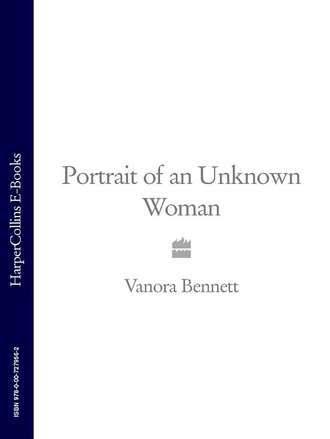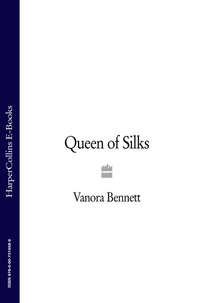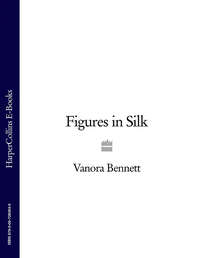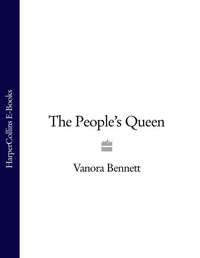
Полная версия
Portrait of an Unknown Woman
Of course I knew nothing back then about how famous this man’s mind had become all over Europe. And I had no clue that, because of my proximity to him, I too would now be moving in the kind of exalted intellectual circles where you could find a man of genius in every room in the house, with one or two to spare on a good day. Or that we girls – I was to have several new ‘sisters’ – would be trained up to be Christendom’s only women of genius. All I noticed on that first day was that the stranger I was to call ‘Father’ had a gentle face: kindly, with its dark features full of life and light. I warmed to him at once, to the face and the smile, Thomas More’s compact body and the sense he gives everyone that only their wellbeing is important to him. Even if this stranger never quite replaced the memory of my real father, Thomas More’s presence was comforting and flattering enough that the country child I still was then found herself eagerly trying out the word ‘Father’ as she looked at him, full of a hope she was too young to understand.
Life with the Mores had turned out to be many kinds of joy I could never have imagined at the age of nine; and now I couldn’t think of living any other way or being anyone except a bit-player in this familiar company of mighty intellects. But the reality of my relationship with Father had never lived up to those first hopes. He was kind, proper, and distant. There were no embraces, no comforting, no special moments. He kept me at arm’s length. He saved his hugs and horseplay for his own Margaret, Cecily, Elizabeth and John.
He saved his cheerful banter for their stepmother Alice, who came to him a widow eight years older than him, with her own estates and her own strong commonsensical views on life, just a year before I came to the house. Father’s foreign houseguests found the new Mistress More harder going than the soft-spoken first wife. If you went along the upstairs corridor late at night and listened to what Erasmus and Andrew Ammonius were whispering in Greek, you’d always be sure to hear the words ‘hag’ and ‘hook-nosed harpy’ somewhere in the conversation. But More wasn’t as delicate a flower as his learned foreign friends. He gave as good as he got from the Dame (we children all called her that, half-jokingly – the name seemed to suit her). He joshed back like a real Londoner, enjoyed her plain cooking and ribald talk, and after his attempts to interest her in Latin had failed, he had some success in making her at least learn music. Father’s new marriage seemed to suit something robust and down-to-earth in him, even if it coincided with – and perhaps caused – the end of some of his humanist friendships. In many ways it suited me and the other wards they adopted too, since no one could have been kinder or run a more welcoming home than Dame Alice. But no one treated me like a beloved child. And I’d have given almost anything for someone to act as though I was special.
For the first few years I was there I almost never dropped my guard except in the books I started reading (something I’d never have done if I’d stayed in Norfolk). Without feeling truly accepted by my new father, I found it hard to make friends with my new stepmother and sisters and brothers. An empty heart was safer than the darkness. At night I would wake up with jaws aching from not crying; eventually they put me in a room by myself because I ground my teeth in my sleep. Being by myself was both welcome and frightening: frightening because I didn’t know what to do with the hot, dark, snivelling, smeary, gut-wrenching, dog-howling breathlessness of the misery that sometimes came to me now when there was no one to pretend to.
Until the teacher, with his big frame and his floppy dark hair, appeared when I was too lost in my feelings to stop, and stood in front of me with his own eyes filling with tears, just like mine. ‘I understand how you feel, little Meg,’ he said softly, understanding everything with so few words that my shame gave way to wonder. ‘I lost my own father when I was a boy. I’m an orphan like you.’ And he hugged me, and let me scrabble into the dark forgetfulness of his chest and arms like a lost infant and sob my heart out, then found a handkerchief for my eyes, and took me on his walk.
‘Come on,’ he said lightly – looking even a bit naughty and conspiratorial – as we slipped out of the front door while everyone else was sleeping off their midday meal. ‘Don’t let’s wake everyone up.’ It must have been when I was thirteen or fourteen; early in the year; cold, in that London way, with a fierce drizzle beating into our faces. Even so, when we started down Walbrook (paved over by then, already, but our house on the corner had been called the Old Barge since the days when it really had been a brook, and boats had come up it from the Thames), the street stank. Naturally, since the pissing conduit was only a few yards away. Equally naturally, neither of us much wanted to walk in that stink.
‘Tell me …’ John Clement began, with a furrow up his forehead. I thought he might have been about to ask me about my real father, but I could also see that my grown-up tutor didn’t know how to continue or what comfort to give. I didn’t want to encourage him to try; it was too private to talk about. So it may have been me who, taking a rare decision on behalf of someone else, pulled John Clement the other way, out of the odours of Walbrook and into sweet-smelling Bucklersbury Street and the shadow of St Stephen Walbrook – where the paving stones were newer and smoother and the smells were gentler and we were more sheltered from the fitful rain.
Some of the apothecaries and herbalists on Bucklersbury had shops, with scales in the window and herbs and spices and preserves on shelves behind. Some plied their trade from the street. We were followed the length of the street by a mad beggar with rolling eyes, yelling comically, ‘Unicorn’s horn! Unicorn’s horn!’, which made John Clement laugh and give the man a coin to go away; which only made the man, who said he was called Davy, follow us closer and louder than ever. It wasn’t the unicorn’s horn that John bought me in the end, or the dragon-water or treacle of the more respectable traders, or the dried crocodile hanging in the shop under the sign of the harp. It was a little bottle, painted sweetly with flowers, from an old countrywoman who had set up her stall on a wall away from the main rush of business.
‘Good day, mistress,’ he said courteously to her, ‘I’m looking for heartsease,’ and the wrinkled old white head nodded wisely at us both with a flash of pale eyes.
‘Washes away your sorrows … raises your spirits,’ she said knowingly. ‘Add it to a glass of wine. Twice a day, morning and evening, six drops.’
He presented it to me with an adult’s flourish; ‘for sorrow,’ he said lightly, and his favourite motto, ‘never look back; tomorrow brings new joys’; but he didn’t quite meet my eyes. It was as if this grown man, my teacher, had suddenly become just a little bit shy.
I kept the heartsease in its pretty bottle. (I couldn’t bear to drink it. But it did its job even so.) It was only the first of my presents from walks in Bucklersbury, because we went back and back. That was just the beginning of our joint fascination with the secrets of the street. It wasn’t just those two herbalists – Mad Davy with his unicorns’ horns, pigs’ trotters and tall stories, or old Nan with her pretty coloured potions – whom we got to know. They were my first favourites, but there was a whole crowd of other odd fish packed into Bucklersbury. Alchemists and barbers and surgeons and tooth-pullers; scientists and frauds and soothsayers. As the weeks and months went by, we got to know every wise man and eccentric in the place.
It was always on a Thursday, every week. It was our secret. I would put on my cape after dinner and be waiting for him by the door. (‘You’re like a dog, waiting so faithfully, grinning,’ Elizabeth said when she saw me there once; even at eight she had her sharp tongue. ‘You make me want to kick you.’ And she gave me a mean little smile. But I didn’t care what she said.)
And every Thursday he’d give me something else for the medicine chest I was building up. When I was fifteen and Father asked John Clement to accompany him abroad for the summer and work as his secretary – on Father’s first diplomatic mission to Calais and Bruges, a gesture of trust as Father moved into the King’s circle that John said delightedly he’d never expected – John bought me a bigger present to remind me of our walks: a pair of scales to weigh the medicine I’d go on buying for myself and that I’d tell him about at harvest time.
But John didn’t come back to us at the end of the summer. Father came back alone. He had no private explanation for me about what had become of John – as if he had never noticed the friendship developing between the two of us – just a bland phrase addressed to everyone present at his first dinner at the family table. ‘John needs to broaden his horizons,’ he said. ‘I’ve helped him get some teaching at Oxford. There aren’t many people there who know Greek.’
The looks Father gave me were as kindly as ever, the encouragement he gave to my studies just as heartwarming. But I knew he was more at ease with talk of philosophy and public expressions of goodwill than with private feelings, and I found that I wasn’t brave enough to take him aside and venture into the personal. I couldn’t find the courage to ask for more information about why John, the first adult I’d made a bond of friendship with – someone whose apparent warmth had reminded me of my country past – had vanished without a word. I retreated into my books and watchfulness again. But for all the sadness that went with that second loss of an adult I’d become close to, I found the strength in the end to take it philosophically and see some good had come of it. My friendship with John had been interrupted, but my fascination with herbs and healing continued. For the awkward, learned but slightly shy girl I’d become, hesitating over how to or even whether to expose myself by expressing an emotion, the ability to treat those near me for the small ailments of everyday life was, if nothing else, a release: not just my form of excellence, my small spark of genius in the great fire of mental energy generated by the More household, but, perhaps more importantly, my way of showing love.
Even though John never wrote to me in the years that followed, I kept an ear tuned for mentions of him in other people’s conversation. That’s how I found out that his first Greek lecture was the best attended in the whole history of the university. It’s also how I discovered, a year or so later, that he’d gone travelling again – the kind of travelling that men in the More family’s circle of people of genius did. He’d gone to Italy – Padua and Siena – to study medicine. He’d learned his Greek when he’d attended another university abroad, long ago, even before he started teaching; I thought in the Low Countries, though he’d never said much about it. Perhaps he just felt now that there was nothing to draw him back to London. No family. No close friends. He probably thought I was just a child in need of kindness, and forgot me.
We had plenty of other tutors after that, and we crammed our heads with so much geometry and Greek and astronomy and Latin and prayer and virginal practice that we started being trotted out in front of all and sundry as an example of the new learning. There was nothing private about our lives, even if once we moved to Chelsea we were far from court. We were always on display. Father took to publishing every scrap of work we produced: all those daily letters we were supposed to write him through our schooldays, practising verse composition and disputation, translating our every thought from Latin to Greek to English and back again, were much less private than we realised. He sent the best ones slyly off to Erasmus, complaining that our handwriting was terrible, and waited for Erasmus to profess himself ‘amazed’ by our wit and style – which of course Erasmus kindly did. And even the letters Father sent us – Latin letters to the ‘schola’, talking about how deep and tender his love was for all of us, how often he took us in his arms, how he fed us cake and pears, how he dressed us in silken garments and all the rest of it – got published too, and polished up and improved long after the event.
Yes, by the time the idea came up of getting our family portrait painted, Father had really got into the habit of dining out on stories of our brilliance. He loved to tell people that there was no reason why women’s brains, even if they were poorer spiritual soil than men’s, couldn’t produce wonderful plants if they were properly tended and planted; or to boast that he was so soft-hearted a parent that he’d only ever beaten his children with peacock feathers. In fact, we’d set such a fashion that the Eliots and the Parrs also started copying Father’s teaching methods. Little Katharine and William Parr were at risk of becoming as clever as us if they didn’t watch themselves. Father had even got interested enough in my modest medical expertise – it was more than just herbal remedies by the time I grew up; of course I’d also started taking a look at some of the Galen and Hippocrates that I imagined John Clement to have been studying in Italy – to be begging the others to read more medical texts too.
Still, none of the tutors we had after John Clement had ever become my special friend. Nor did anyone seem to have remembered to look for a husband for me through all the alliance-making of the past few months, which had taken up so much of Father’s time and effort on everyone else’s behalf. That had left me all the time in the world to feel nostalgic about John Clement, who I still believed had loved me most, once, however impossible it now seemed given that all we’d heard about him for years was the occasional mention in a letter from Basel or Bruges from one of the learned friends who didn’t come to the house any more.
Until yesterday. (It seemed incredible that it had been just a day, and here I was with my heart in my mouth already waiting for a sighting of him.)
Yesterday, when Elizabeth suddenly leaned forward at the end of dinner. It was a casual day; Dame Alice didn’t bother so much about Bible readings when Father wasn’t there, and Elizabeth’s strangle-voiced new husband William had left the table to write letters. She gave me a meaningful look down her straight nose, and said, quietly, so only I could hear, ‘I saw John Clement in London.’
I practically choked on my posset. But I kept my face composed.
‘What do you mean?’ I asked. ‘He’s in Italy, studying for his MD. Isn’t he?’
‘Not any more,’ she said.
Elizabeth was one of those women I would never be: not a thinker, but small, neat and with alluring manners; catlike in the sense that she always landed on her feet and made it look effortless. She was the prettiest of the More daughters and the worldliest. She reeled in William Dauncey, with his Adam’s apple and substantial income, on the basis of one evening at a court function and some demure-looking flirting; she got Father to place him in a sinecure job in the Duchy of Lancaster office right after their marriage and she was already fishing for better placements for him. I’d known from the first moment I saw her, when we were children, that we would never be close. I didn’t like to think it was just envy of her milky skin and blankly beautiful features that made me imagine her as the kind of person who’d always get her own way, and who would be as spiteful as a scratching kitten if she didn’t. I preferred to think that I’d spotted a deep-seated mean-spiritedness in her that I knew I could never love. And now it flashed through my mind that her meanness might just stop her talking if she saw me wanting desperately to know what she had to say.
Still, I couldn’t resist trying. Casually, very casually, I asked: ‘How interesting. What’s he doing now?’
‘He’s a server in the King’s household for the moment. He’s been back in London since he qualified last summer.’ She paused. She always knew the details of people’s positions. ‘He says Father got him the job.’
We both let Father’s omission in telling us that important fact pass, and our shared silence drew us closer. Some things were best left unsaid. There had been a lot of eloquent pauses in our household since we moved to Chelsea.
‘He was at a dinner Father sent us to last month, right after the wedding. Part of this plan to get William and Giles seats in the next parliament.’ (I tried, not completely successfully, to still the twinge of envy that this casual mention of her wifely plans set in motion inside me.) ‘We were in the Duke’s chambers and Father was called away suddenly to read something for the King before we even went in to dinner,’ she paused again, looking at her golden ring, ‘and then John Clement turned up. I nearly died of shock …’ She stopped and looked out of the window. There was sunlight beating down on us. ‘It’s hotter than you’d expect for the time of year, isn’t it?’ she went on, even though the inside of the room, bare of decoration still because there’d been no time to commission drapes and pictures yet (hence the Holbein portrait idea) was actually draughty and rather cold. ‘He looks older,’ she said, and there was something a bit wistful in her face. She twisted the wedding ring on her finger. ‘I saw quite a bit of him after that, actually.’
She’d been back for three days. Father had sent her and Cecily home on Sunday evening, earlier than they’d expected, to help prepare for the painter’s arrival. I’d hardly seen her. She’d kept to her room and her prayers and whatever whispered conversations young married women might have among themselves, but she hadn’t sought me out. Why had she held on to this piece of information for so long? And why was she telling me now? I could sense that, in her devious way, she was probing for some reaction from me. Not knowing what reaction she could be looking for made me feel uneasy, and stubbornly unwilling to give an inch.
‘He’s not going to become a “total courtier” too, is he?’ I asked. Eyes firmly down on my own ring-free hands. Erasmus’ nickname for Father when he first saw him on the King’s business had stuck. I laughed a tinkling girlish laugh, which sounded forced to my ears. Elizabeth didn’t seem to hear its falseness, but she wasn’t in a mood to laugh. She was looking gentler than usual, playing absentmindedly with her spoon in the ruins of the dish of beef that (with more than her usual birdlike appetite) she had demolished. She just smiled.
‘I don’t think so – he can dance, though, did you know? – but he says he wants to practise medicine soon. He’s trying to join the College of Physicians.’
‘And does he have a family?’ I asked. Holding my breath.
Perhaps it was a mistake to ask the question direct. Remembering to look modestly down at my hands again, I found they weren’t where I’d left them. My fingers were plucking at my brooch. To cover my embarrassment, I took the whole thing off and put it down on the table.
She shook her head, and a little smile appeared on her face, like a fisherman’s look as he starts playing the fish he knows is hooked at the end of his line. She bit her lip, then looked up at me, with her demurest public look. ‘He said he would love to see the new house. He said he’d come and visit us.’
I waited. I’d gone too far. I wasn’t going to ask when. I concentrated on the sunlight in the garden.
The silence unsettled her. ‘He was asking after you, actually,’ she went on, unwilling to let go, and under the flirtatious eyelashes sweeping her cheeks I could sense anxious, watchful eyes. ‘That was when he said he’d come and see us.’
‘Oh,’ I replied, feeling my heart secretly leap, and suddenly confident too that I could get off the hook of her questions. I shrugged, almost beginning to enjoy the game. ‘I doubt we’d have anything to say to each other any more, now that we’ve finished with school … though,’ (and here I smiled noncommittally) ‘of course I’d like to hear about his travels.’
‘Oh no,’ she answered. ‘He was particularly interested in you. I was telling him how you’d become a medical miracle and practically a doctor yourself. I told him how you’d cured Father’s fever by reading Galen. He liked that.’
I did cure Father once, a few years ago. And I did consult Galen. De differentiis febrium, the book was called; on the difference between fevers. It was when Father came back exhausted and hot and sweating and fitting from one of his diplomatic trips to France, and none of the doctors who came to the house could do anything for him. They all loved it when I pronounced that he had what Galen called tertian fever. But the truth is I couldn’t appreciate Galen – what they called heroic doctoring, with lots of recommendations to purge and bleed your patient and show off in your diagnosis – it seemed like hot air to me. All I did was quietly give him a simple draught of willow-bark infusion that I’d bought on Bucklersbury. One of the apothecaries told me it would cool his blood. It did – he was up and about again within a day. I couldn’t tell any of them how easy it was, though; they’d have thought me simple-minded. It was easier to let them go on believing in Galen’s three-day fever.
‘He said you were the one who got him interested in medicine in the first place. He said it was all because you used to go walking in Bucklersbury talking to the herbalists,’ Elizabeth went on, and I was aware of her eyes on my face again, ‘and how he’d love to see you again. And then he said, “It would have to be on a Thursday, of course.” But he was laughing, so perhaps he didn’t mean anything by it.’
Another silence.
I pushed my platter gently back.
‘Well, it would always be good to see John again. I miss the old days in London, when it was easy for so many people to call by. Don’t you?’ I said finally, looking round for the brooch I’d put down and displaying so little interest in the idea of a visit from John that I could see her secret curiosity, over whatever it was, finally wane.
But of course I could think of nothing else afterwards. And I’d woken up this morning earlier than usual and full of hope – because today was Thursday.
It happened more awkwardly than I could possibly have imagined. When we finally saw a likely-looking wherry crawling down the edge of the river, we all poured out of the wicket gate like an overenthusiastic welcoming committee and rushed to the landing stage to freeze our spontaneous selves at the water’s edge.
But there were two people, not one, arranged uncomfortably around the pyramid of bags and boxes stowed in the bottom of the boat. They didn’t seem to know each other, or be talking. But both wore foreign clothes. And both began to gather their belongings about them as if they were going to get out.
Dame Alice was staring at them, perplexed, visibly wondering which was our guest and inspecting the packages for signs of paints and easels and an artist’s paraphernalia.
One was a thick-set man of about my age, whose square face was covered, from head to blunt yeoman chin, with a layer of shortish, fairish, curlyish hair. He had eyes set in solid pouches of flesh, and ruddy cheeks, and a short nose. He was looking out with a stranger’s hesitant hope of a kind welcome. The other was a tall man with an old dark cloak wrapped around his face up to the ears. It was only when he stood up, making the boat wobble, and jumped out on long, energetic legs, that I recognised his big hook of a nose and the indefinable sadness in eyes that reflected the sky. He didn’t look a day older.
‘John?’ I said, questioningly. Then there was an explosion of sound from behind me.
‘John!’ Elizabeth yelled joyfully, completely forgetting the decorum expected of a married woman, and slid out from William’s arm to rush forward into those of the tall man. He took a half-step back, then braced himself, caught her, and opened his arms wider as if to catch more children.
‘Little Lizzie!’ he called, putting a smile on his face, and looked round rather anxiously as though hoping that his other former pupils would join the embrace.
Then something went through the whole group. A shiver, as though they’d all come out hoping to console themselves with a taste of imitation happiness and had suddenly been offered a plateful of the real thing. They tightened around the newcomers like starving beasts of prey. Everything else they might have been out in the garden to do went clean out of their heads. Everyone was suddenly caught up in the old days. One beat behind their sister, Margaret Roper and Cecily Heron ran up to the newcomer. He looked relieved at the warmth of this three-woman collective embrace, so relieved that he seemed almost about to swing them all around in the air at once, but perhaps remembered that they were three young matrons now, and not small girls, or started worrying about the danger of flinging them into the choppy river in mid-arc. He let go of them all, a little suddenly.






